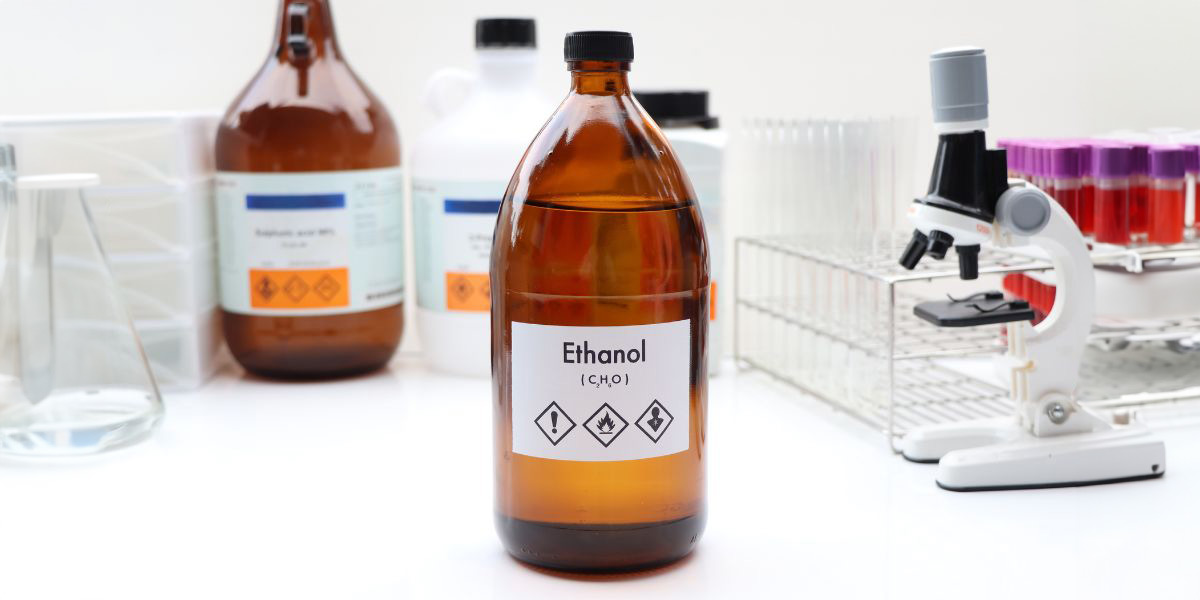What is ETOH Abuse?

Alcohol, commonly referred to by its chemical name ethanol (ETOH), is a widely consumed substance across the globe. Drinking in moderation is fine for socializing, but heavy drinking can cause health problems and social issues. ETOH abuse includes various patterns of drinking that negatively impact a person’s physical, mental, and social well-being.
It’s important to know the differences between ETOH abuse and alcohol use disorder. Understanding their consequences is crucial. This knowledge helps in recognizing the signs and getting the right help
What Is ETOH?
ETOH, or ethanol, is alcohol found in alcoholic beverages such as beer, wine, and spirits. It is a psychoactive substance with dependence-producing properties. ETOH is commonly consumed for its intoxicating effects, but misuse can lead to significant health risks and social issues. It is important to understand ETOH abuse because it helps in identifying and dealing with serious conditions linked to alcohol consumption.
ETOH affects the central nervous system, altering mood, behavior, and cognitive function. In moderate amounts, it can produce a feeling of relaxation and euphoria. However, excessive consumption can lead to impaired judgment, coordination, and even alcohol poisoning, which can be life-threatening. Alcohol affects people differently based on how much they drink, their tolerance, and their health.
Long-term alcohol use can cause health problems like liver disease, heart issues, and damage to the brain and nerves. It’s important to know the risks of drinking alcohol and be able to spot signs of misuse. This can help prevent negative consequences from occurring. Additionally, alcohol can weaken the immune system, making people more susceptible to infections and diseases.
What Is Alcohol Use Disorder?
Alcohol use disorder (AUD) is a medical condition characterized by an inability to stop or control alcohol use despite adverse social, occupational, or health consequences. According to the Diagnostic and Statistical Manual of Mental Disorders (DSM-5), AUD is diagnosed when a person exhibits at least two of eleven criteria over a 12-month period. These criteria include a strong desire to drink alcohol, unsuccessful efforts to cut down, and continued drinking despite problems caused by alcohol.
According to the National Institute on Alcohol Abuse and Alcoholism (NIAAA), millions of adults around the world are affected by AUD to different extents. It ranges from mild to severe, depending on the symptoms present. Early diagnosis and intervention can prevent the progression of AUD and mitigate its impact on health and well-being. People with alcohol use disorder may experience a range of physical and psychological issues, including liver disease, cardiovascular problems, depression, and anxiety.
One big risk of AUD is becoming reliant on alcohol, where the body requires alcohol to work correctly. Stopping alcohol suddenly can cause severe withdrawal symptoms like shaking, sweating, feeling sick, and seizures. These symptoms can be life-threatening and often require medical supervision to manage safely.
Drinking alcohol can increase the chances of developing problems with other substances. People might use other substances to deal with the effects of alcohol or to make themselves feel more intoxicated. This can complicate the treatment process and increase the risk of adverse health outcomes.

Alcohol Misuse
Alcohol misuse involves drinking in a manner, situation, amount, or frequency that could cause harm to oneself or others. This can include binge drinking, which is defined as consuming large quantities of alcohol in a short period, leading to a blood alcohol concentration (BAC) of 0.08% or higher. Binge drinking increases the risk of accidents, injuries, and alcohol poisoning, which can be life-threatening.
Heavy drinking is another form of alcohol misuse. Typically, people define it as consuming more than four drinks on any day for men or more than three drinks for women.
Drinking excessively over a prolonged period can lead to severe health issues. These may include liver disease, heart problems, and a compromised immune system. Additionally, heavy drinking increases the risk of developing AUD and other chronic conditions.
Alcohol misuse not only affects the person’s health but also has broader social implications. It can lead to strained relationships, job loss, legal problems, and financial difficulties. Understanding and addressing alcohol misuse is essential in preventing these negative outcomes and promoting healthier drinking patterns.
Difference Between ETOH Abuse and Alcoholism
While ETOH abuse and alcoholism are often used interchangeably, they have distinct meanings. ETOH abuse is when someone drinks in a way that harms their health, relationships, or ability to work. People who abuse alcohol may not be addicted but still do dangerous things and face bad outcomes.
Alcoholism is also known as severe AUD and involves a strong reliance on alcohol, both physically and mentally. People who are addicted to alcohol may have withdrawal symptoms like shaking, worry, and seizures when they quit drinking. They might have tried to quit drinking before but kept drinking even though they knew it was harmful.
The distinction between ETOH abuse and alcoholism is important for diagnosis and treatment. While both conditions require intervention, the approaches may differ. Those who abuse ETOH might benefit from behavioral therapies and support groups to modify their drinking patterns.
People with alcoholism often need a comprehensive treatment plan. This plan may involve medical assistance for withdrawal symptoms. It may also include ongoing support to help them stay sober.
Treatment for Alcohol Use Disorder
Treatment for alcohol use disorder is multifaceted and typically includes a combination of medical intervention, behavioral therapies, and support groups. The primary goals are to stop drinking, manage withdrawal symptoms, and address any underlying psychological issues. Here are some common treatment options:
Medical Treatment
Medications can help manage withdrawal symptoms and reduce cravings. For example, naltrexone can decrease the desire to drink alcohol, while acamprosate can help maintain abstinence. In severe cases, doctors may need to hospitalize the patient to manage withdrawal safely. Medications like disulfiram can cause unpleasant reactions when individuals consume alcohol, deterring them from drinking.
In treating AUD, detox is often the first step to clear the body of alcohol. This process can be challenging and dangerous without medical supervision due to the risk of severe withdrawal symptoms. Medical detox provides a safe environment where healthcare professionals can monitor and manage symptoms, ensuring the person’s safety.
Behavioral Therapies
Behavioral therapies are essential in treating AUD. Cognitive-behavioral therapy (CBT) helps individuals identify and change negative thought patterns and behaviors associated with drinking. Motivational enhancement therapy (MET) can increase a person’s motivation to change their drinking habits. These therapies address the psychological aspects of addiction, helping individuals develop healthier coping mechanisms and strategies to avoid relapse.
Family therapy can also be beneficial, as it involves loved ones in recovery. This approach helps improve communication, rebuild trust, and create a supportive environment conducive to long-term sobriety. Involving family members can also educate them about AUD, reducing stigma and increasing understanding.
Support Groups
Support groups like Alcoholics Anonymous (AA) offer a community of people who know what it’s like to overcome alcohol addiction. These groups offer emotional support, accountability, and practical advice for maintaining sobriety. Joining support groups can help improve long-term recovery by connecting with others who have similar experiences and goals.
Other groups like SMART Recovery help people overcome addiction by empowering them and using science-based methods. They emphasize self-empowerment and the use of scientific methods to combat addiction. These groups provide different viewpoints and resources for dealing with AUD, helping people find their best support system.
Evidence-Based Approaches
Evidence-based treatments are critical for effective recovery. These approaches are grounded in scientific research and have been proven to be effective in treating AUD. Combining medical, psychological, and social interventions increases the likelihood of a successful recovery.
Integrated treatment plans that incorporate multiple evidence-based strategies tend to be the most effective. This approach covers all aspects of a person’s health and well-being to address the complexity of AUD. It’s important to regularly review and change the treatment plan to meet the person’s changing needs during recovery.

Recover at Northridge Addiction Treatment Center
Understanding ETOH abuse and its distinction from alcoholism is crucial in addressing the broader issue of alcohol use disorder. People and their loved ones can seek appropriate treatment and support by recognizing the signs and symptoms. Northridge Addiction Treatment Center (NATC) provides evidence-based, compassionate drug and alcohol rehab.
Addressing ETOH abuse requires medical detox and a comprehensive approach that includes education, prevention, and access to effective treatment options. Efforts to reduce stigma and raise awareness about AUD can help more people seek help for their alcohol use. Family, friends, and community support also play a vital role in the recovery process. NATC is an inpatient treatment facility that customizes treatment plans for each resident according to their needs and goals.
Recovering from alcohol use disorder can be challenging, but with the right help, people can stay sober and live happy lives. Recovery is ongoing and needs dedication, persistence, and a good support network.
Reach out today to speak with one of NATC’s caring treatment specialists about becoming a part of the recovery family.
Find Meaningful Recovery
Our caring and compassionate specialists are eager to help you comfortably navigate this journey to recovery. Our individualized treatment plan, programs, and therapies may be a perfect match for you or your loved one. Let us assist you in living the happy life you deserve. It starts with a phone call.




